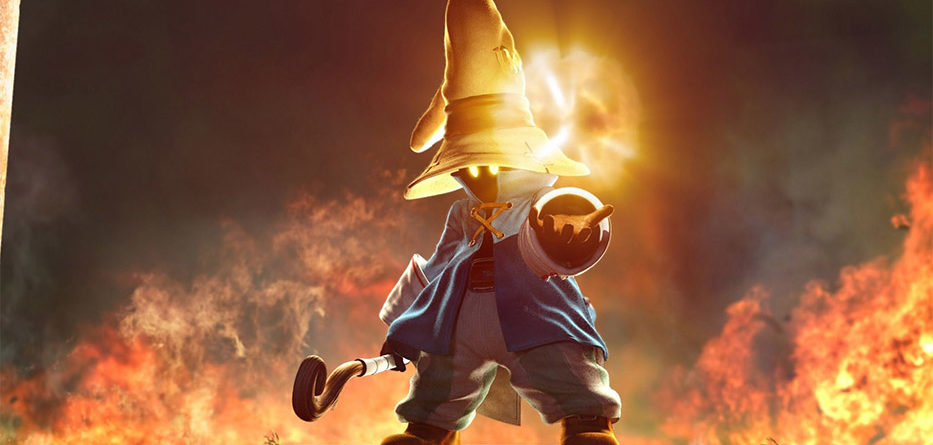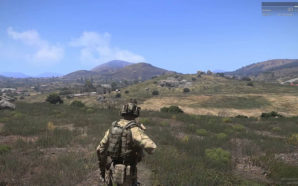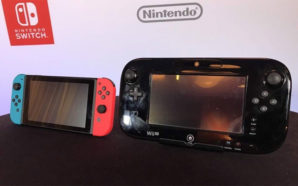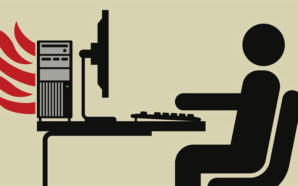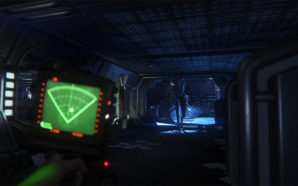The role-playing game, or RPG, is one of the oldest genres in gaming, being inspired by tabletop games like Dungeons and Dragons. RPGs also happens to be one of my favorite genres. I recently made a list of my top ten games of all-time, and six out of the ten ended up being RPGs. RPGs is still one of the most popular genres out there, though it has seen quite the evolution since the first electronic RPG showed up. What was once a genre defined by slow, strategic combat has been essentially replaced by games with combat that is much more action-focused and fast-paced. This isn’t necessarily a bad thing, as many action-RGPs have been fantastic, in fact, my favorite game, Mass Effect 3, is the most action-oriented in the series, prior to this year’s Andromeda. However, I would be lying if I didn’t bemoan the gradual decline of the turn-based RPG over the years. I mentioned the six RPGs on my top ten list, but of those six, four are turn-based. They are Paper Mario, Pokemon SoulSilver, Final Fantasy IX, and Star Wars: Knights of the Old Republic. They all have different systems, but at their core, they are all turn-based RPGs, and I firmly believe the turn-based RPG needs to make a comeback.
Humble Beginnings
In tabletop RPGs, a group gathers together, and each person assumes the role of a specific character, each with a specific class, granting them unique abilities other characters may not necessarily have. The RPGs on video game systems essentially followed this same system, except for the fact that there’s now one person in control of a group of characters. This was popularized with the original Final Fantasy, which essentially made RPGs a viable genre for years to come. Most RPGs followed the Final Fantasy format, with characters, depending on whether they align with good or evil, would be arranged on a certain side of the screen, and you would give your commands. Following this, the battle would resume, with each character executing their command, and this cycle repeats.
This was the pattern most RPGs of the era that followed, with Final Fantasy getting two more entries on the NES (that weren’t released in America at the time), and series like Dragon Quest (or Warrior), while never as popular as Final Fantasy, and Pokemon, which is still a one of the most popular franchises in gaming, also utilizing the classic formula.
Signs of Change
However, as time went on, the action RPG began to become more prevalent, and more popular. The Legend of Zelda on the NES and Secret of Mana on the SNES featured a more action/adventure aspect to its combat. Games like Vagrant Story and Parasite Eve, both developed by Square, featured real-time combat that could be paused.
Even the Final Fantasy series began to see faster-paced combat with the introduction of the Active Time Battle, or ATB, system. The turn-based RPG continued to chug along in the ’90’s, with the Mario RPG series and acclaimed game like Suikoden II utilizing these systems. The tactical RPG genre, also arguably saw its golden age in this era, with games like Tactics Ogre: Let us Cling Together and Final Fantasy Tactics being released. Despite this, action-RPGs continues to gradually overtake the other types of RPGs.
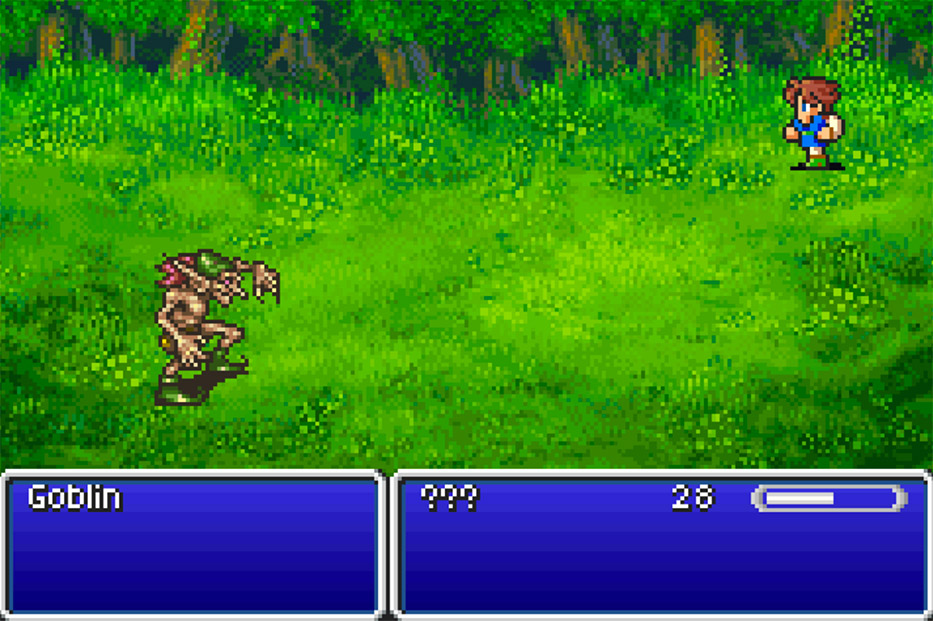
While still turn-based the Active Time Battle system (shown here in Final Fantasy V) is faster-paced, and incorporates elements of real-time battles.
The 2000’s is truly when the action RPG began to dominate. Series like Kingdom Hearts, Souls, and Mass Effect released to huge popularity. Mass Effect is the perfect example of this phenomenon. If you look at the progression of the four core games in the series, it started off as an RPG with elements of a third person shooter, to a third-person shooter with some RPG elements added to it. Even the king of the RPG, Final Fantasy has gone through this evolution.
Final Fantasy X had a brief return to fully turn-based combat, but since then the games have gone in an increasingly action-oriented direction, with Final Fantasy XV having no turn-based elements at all. Nowadays, most AAA games have some RPG elements, however, despite this, there hasn’t been a full-on turn-based RPG in the AAA space in years.
So why did this happen? There’s probably a few reasons. First off is a word many think of when discussing turn-based RPGs: slow. There’s the constant pausing in combat, and the grinding. The act of going into the wild and fighting enemies for hours doesn’t seem very attractive does it? I can imagine AAA developers feeling like the turn-based RPG is not an effective way to show off their high-end engine, and a fluid, fast-pace fight would be a better use of it.
And I can see the reasoning behind that, as much as I love turn-based games, they can be a bit of a slog to go through. It also doesn’t help that the game that popularized the RPG over in the West, Final Fantasy VII, used the ATB system, which is faster-paced, though even that game is compared to today’s RPGs. But that doesn’t mean they should be gone forever.
Bring Back the Class

The original Final Fantasy allowed you to assemble your team right at the beginning, a feature not seen in the series since.
One attribute many associate with the turn-based RPG is character classes. Warrior, Mage, Thief, etc. Character classes aren’t necessarily something that have gone away, but the way they are executed are different than before. In modern-day RPGs with classes, you can mix and match what abilities your character(s) have, and even if two players have the same class of character, their abilities may be wildly different.
The recently-released Mass Effect: Andromeda took this a step further, pretty much eliminating classes altogether, and allowing you to switch classes mid-game. However, I long for an RPG that gives you a set group of characters, each having a set class, with distinct abilities coming with it.

Character classes are also limited by what equipment they can use, adding another element of strategy.
Despite utilizing a turn-based combat system, Final Fantasy X didn’t really have character classes. Sure, each character started on a specific area of the Sphere Grid, each with different abilities, but the Sphere Grid allowed essentially any character to learn any ability. So, despite Yuna being, for all intents and purposes, a White Mage, all characters can learn Cure on the Sphere Grid.
Besides X, Final Fantasy IV and IX are my other two favorite games in the series, and, maybe unsurprisingly, all the party members in these games are given distinct classes. Because of this, only certain characters can learn specific abilities. For example, only Dragoons, like Kain in IV and Freya in IX can equip spears, and as such, are the only characters who can learn the Jump ability. And these are abilites that they learn naturally, rather than spending customization points on them in-game.
Sure, customizable abilities are very appealing, and sticking in the Final Fantasy world, the Materia system of VII does give the player an unprecedented amount of freedom. Some may even argue that customizable characters add another layer of strategy to the gameplay. I won’t necessarily disagree, but I will say that the character class structure can add its own form of strategy.
Choosing which characters to have on your party can determine the outcome of the battle. You better make sure you have a White Mage in your team, or else hopefully you’re stocked up on potions. The warrior is the muscle of the team, sure, but what if you have a monster that is highly impervious to physical damage, but weak to lightning magic? Hopefully you have a Black Mage who knows Thunder. Those enemies who are high off the ground and can’t be reached with a sword? An Archer will do the trick.
What Now for Turn-Based RPGs?
Final Fantasy XV was a huge undertaking, to put it mildly. From conception to release, the game in its various forms took a decade to make. And making video games is not cheap. So, Square-Enix will naturally want to use the XV engine in the future. But, after the game that was billed as for “newcomers and veterans alike”, I think it’s time to go back to the series’ roots. Final Fantasy IX was a game created with the intention of also going to the roots of the series, using the power of the PlaySation.
That’s what my dream Final Fantasy XVI would be. A game that returns to the Fantasy setting of the heyday of the series, but one that looks like XV. I would love if it would go back to a turn-based combat system, possibly similar to X, and have each character belong to a specific class, similar to IX. Maybe it can be like IV, and have characters join and leave the party as the story dictates, or maybe it can give you a group of characters you can switch in and out, either mid-battle or on the map.

Turn-based RPGs like Golden Sun have thrived on handheld systems, but have essentially vanished on home consoles.
Now, the turn-based RPG isn’t dead, per se, but its life in the AAA space is not what it used to be. Some of the most popular games still utilize a turn-based system. Pokemon is one of the most popular franchises in video games, while Persona 5 is making a huge impact, and both are turn-based. But besides that, there are no high-profile turn-based relases, especially not on the console front. The turn-based RPG has certainly found life on the handheld front, but sadly, have been few and far between on home consoles. This is a shame, and I hope that this is a trend that starts to reverse soon. The tactical RPG is alive and well, but this is a specific genre, and one that may not necessarily appeal to some (example: the author of this piece).
If the 3D platformer and war-based first-person shooters can make a comeback, why can’t turn-based RPGs? ’90’s nostalgia is all the rage nowadays, and what better way to capitalize on that than making a game whose gameplay mechanics are rooted on the acclaimed RPGs from that era, only with a modern-day look?
So, long-live the turn-based RPG, and hopefully, we will soon be experiencing a renaissance of a genre of games that has sadly, lost its day it in the sun.




